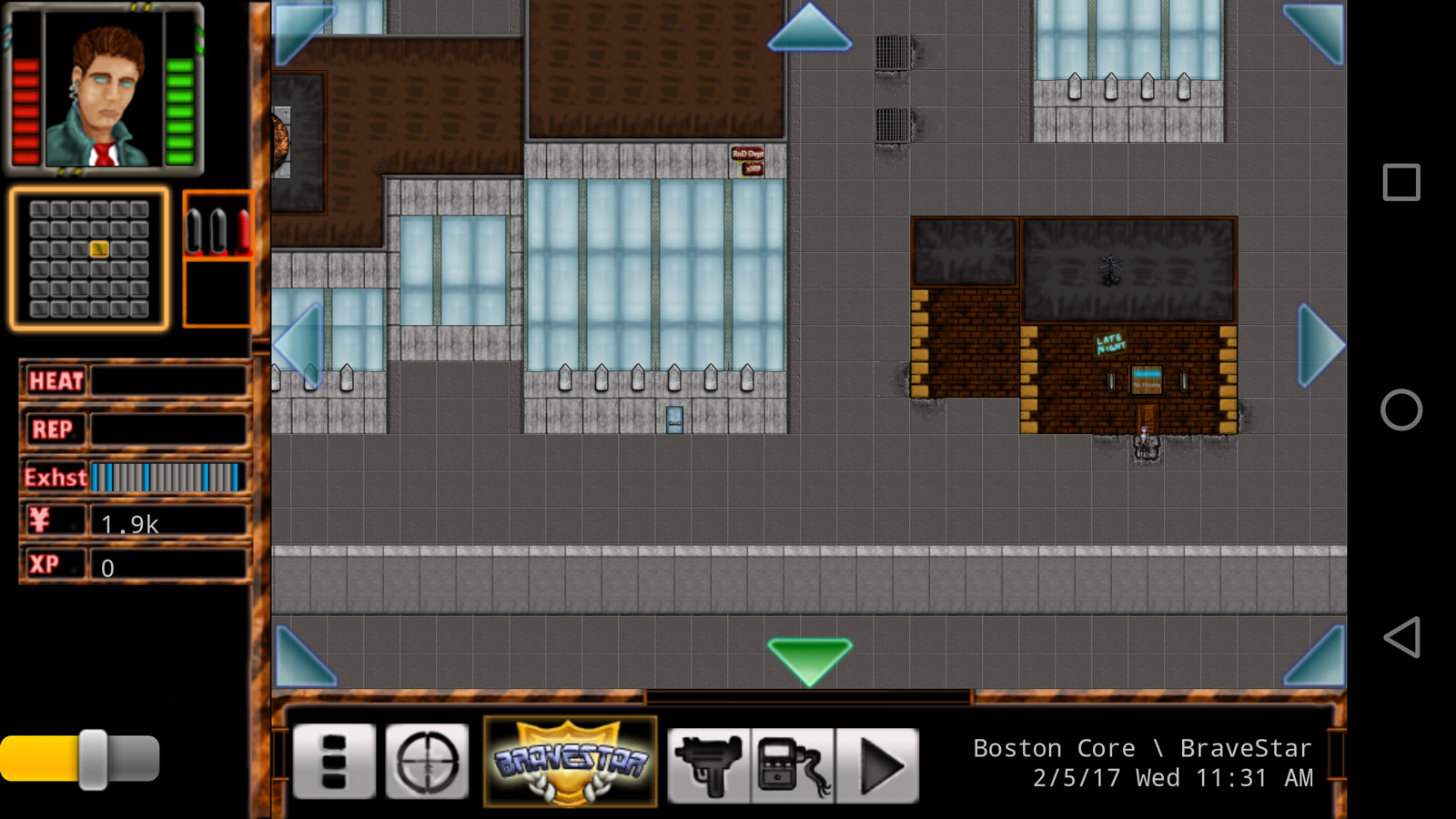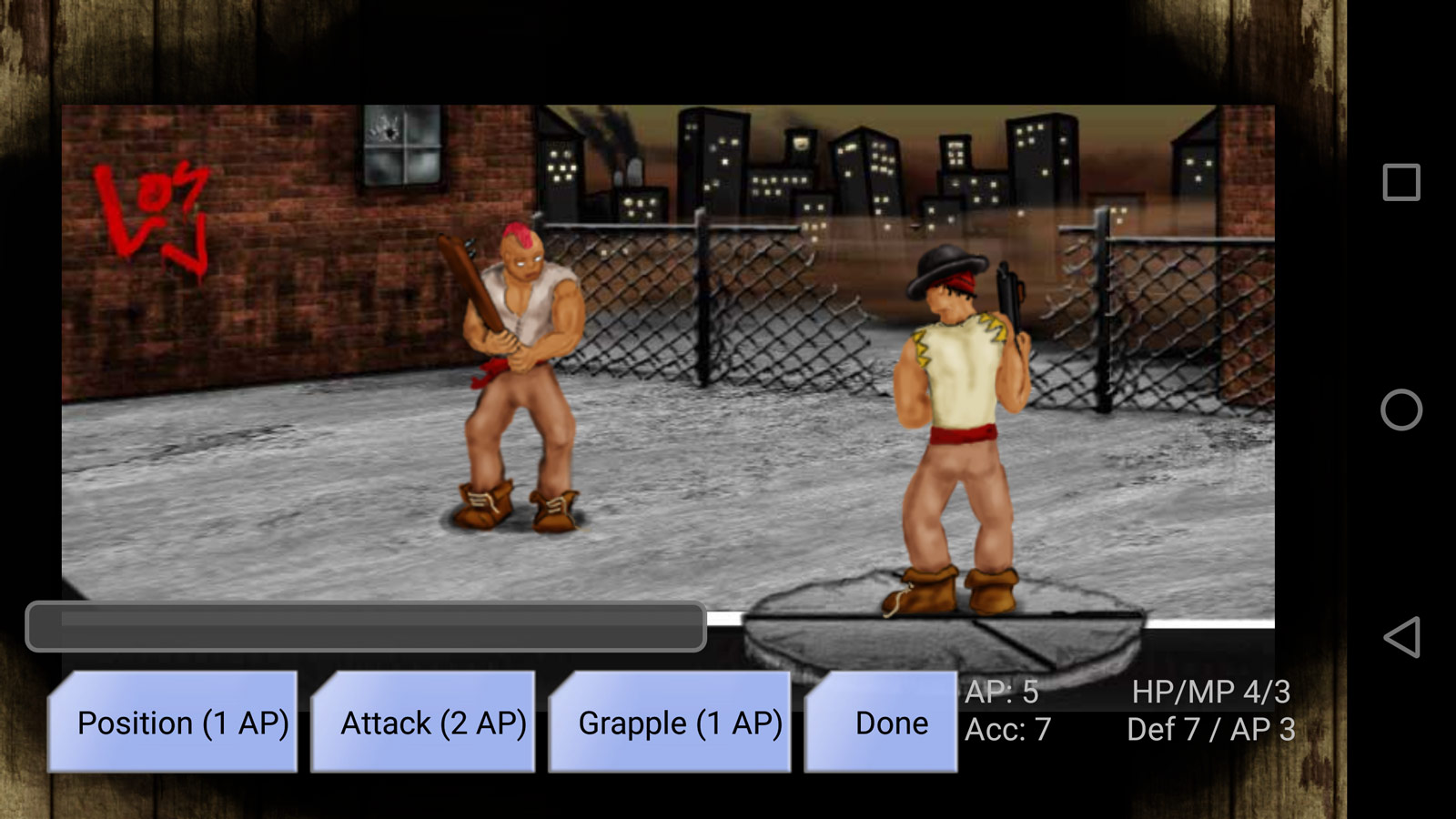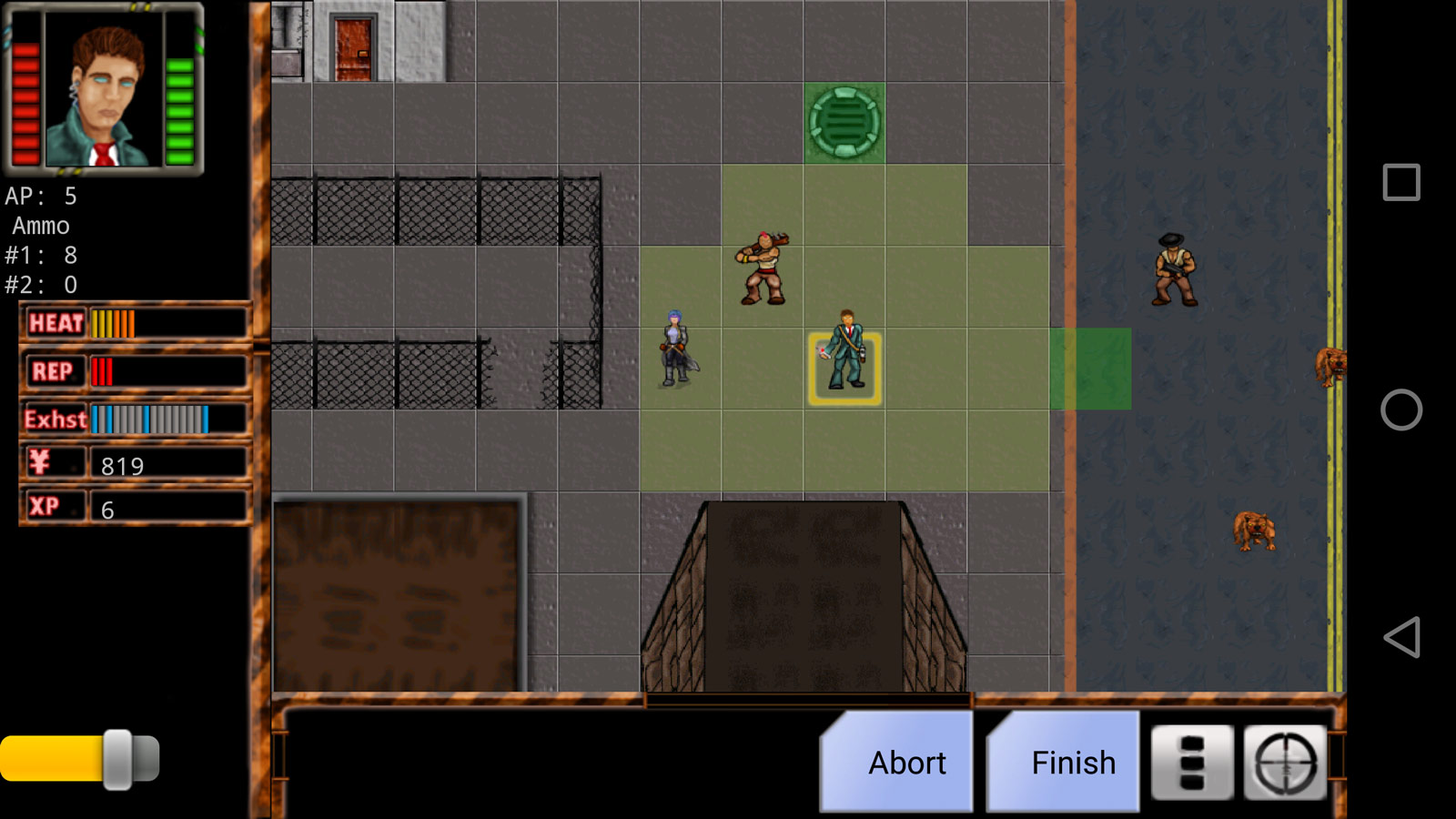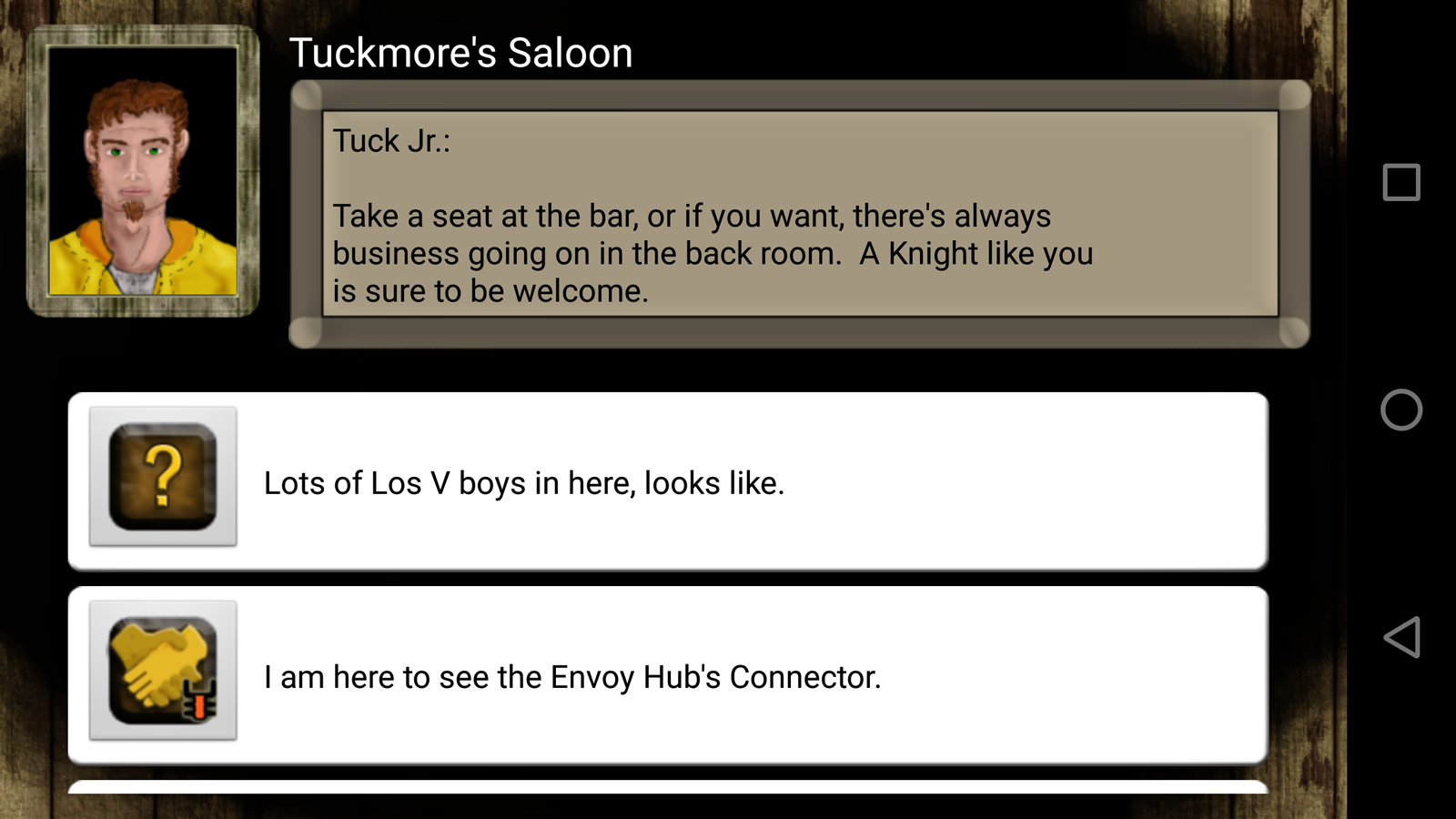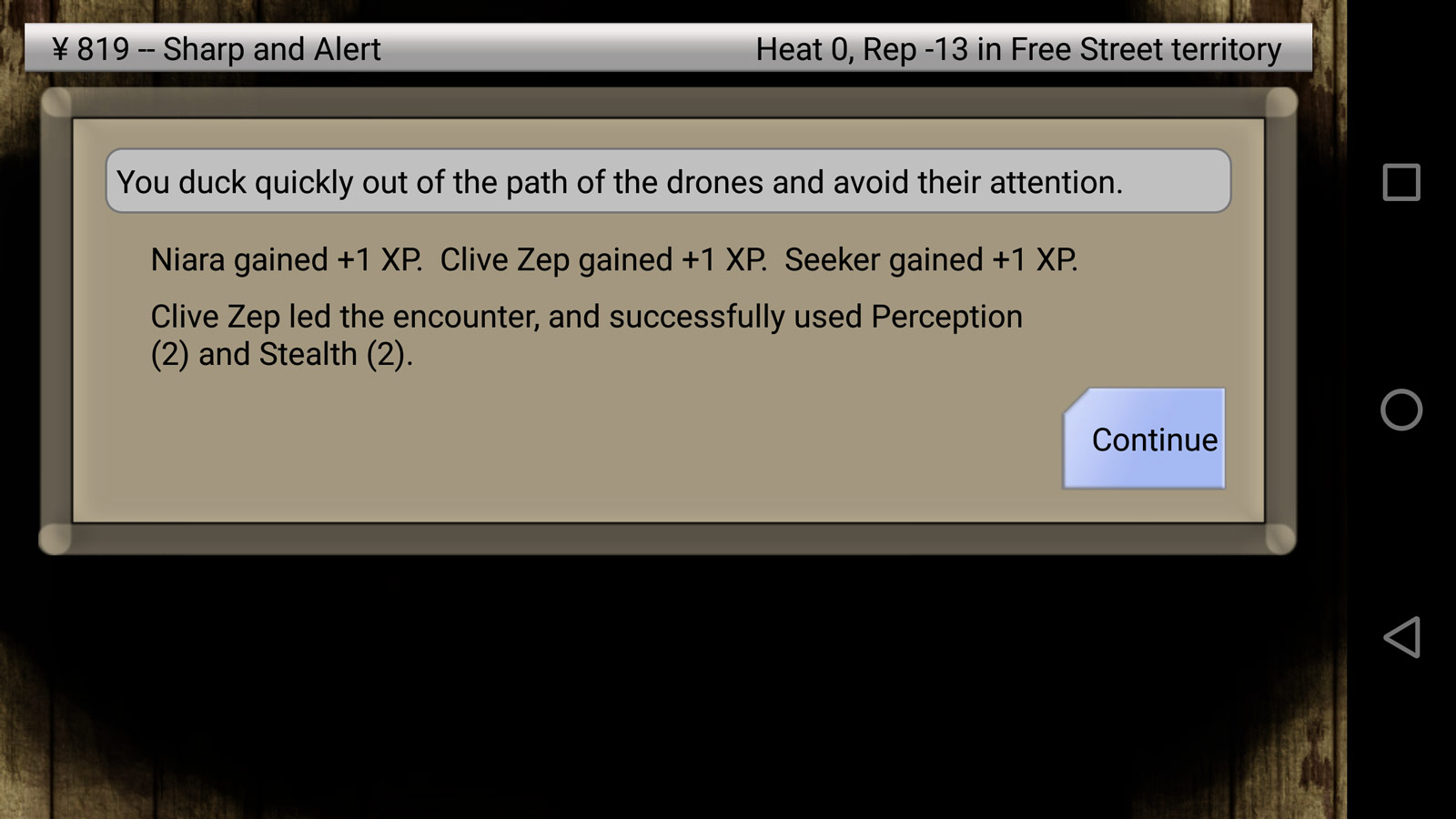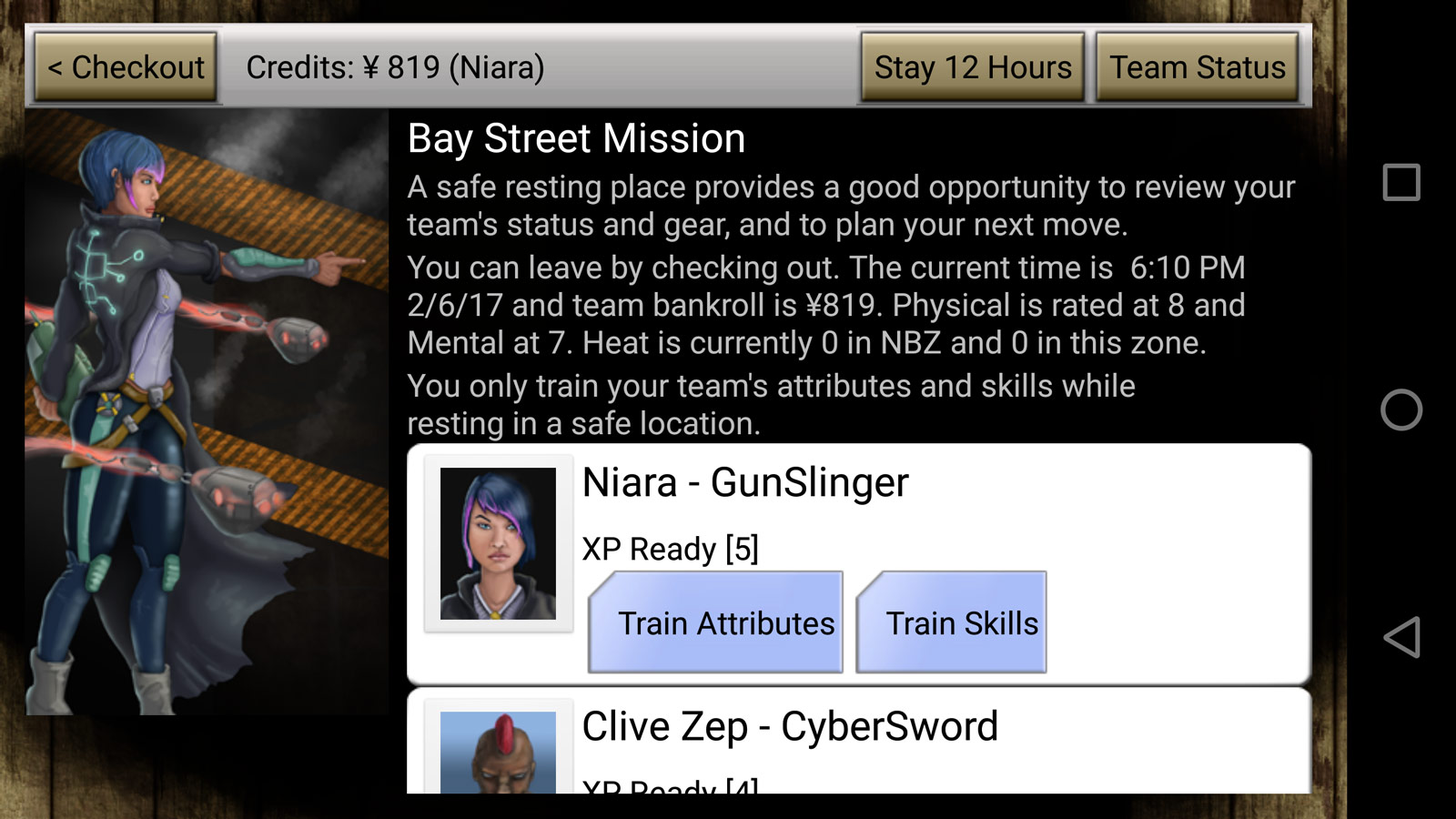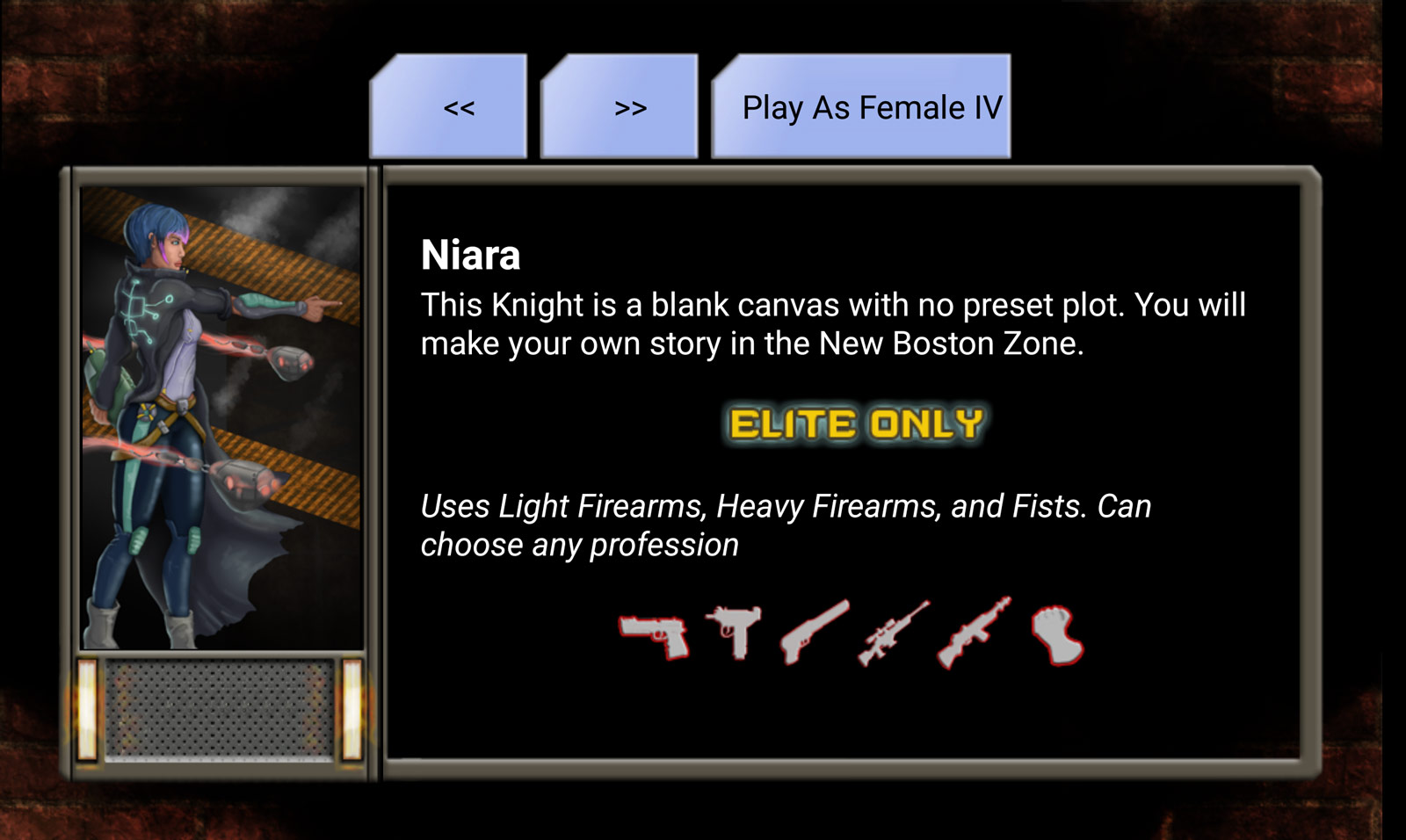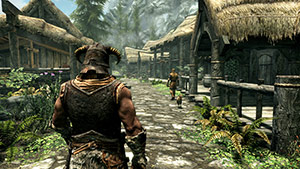 |
| Pete Leavitt |
Celebrating the effectiveness of sparseness.
12.20.18 - 12:41 AM
[Managing Editor's Note: Today we're pleased to bring you the first article from one of our recent feature editor hires, Pete Leavitt. A fan — if not connoisseur — of old-school computer RPGs, Pete's first column is focused on Cyber Knights RPG, a game many have likely not even heard of. Please enjoy!]
The Trese Brothers create boutique games that sharply call back to the classics of the medium while still possessing a strong identity of their own. Their masterful Cyber Knights RPG echoes classic PC RPGs but most closely models itself after Shadowrun. This Sega Genesis/Mega Drive gem is widely considered one of the strongest RPGs of the 16-bit console era. It drips with atmosphere and offers an entire city to the player, allowing them to freely explore and make a living through a myriad of activities from courier work to hacking megacorporations and selling the files to their rivals.
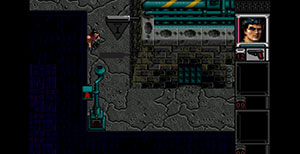 Cyber Knights is an open-world experience like the Mega Drive classic to which it pays homage. Aside from not being beholden to the Shadowrun license and all that goes with it, Cyber Knights primarily differs by being turn-based, while Shadowrun was a real-time affair. However, this seemingly minor difference reverberates throughout the game such that, from a pure gameplay perspective, Cyber Knights provides a distinct experience from that of its inspiration. The two will not be compared here, but suffice it to say that neither one supplants the other, and both are worth a cyberpunk's time.
Cyber Knights is an open-world experience like the Mega Drive classic to which it pays homage. Aside from not being beholden to the Shadowrun license and all that goes with it, Cyber Knights primarily differs by being turn-based, while Shadowrun was a real-time affair. However, this seemingly minor difference reverberates throughout the game such that, from a pure gameplay perspective, Cyber Knights provides a distinct experience from that of its inspiration. The two will not be compared here, but suffice it to say that neither one supplants the other, and both are worth a cyberpunk's time.
The plot serves its purpose while smartly staying out of the way. A generation ago, humanity was forced to seek protection from the effects of a world-ending event by huddling underneath giant domes that encased the world's major cities. Your journey takes place entirely beneath the dome of the massive New Boston Zone (NBZ), which is ruled by 10 factions. To conduct their business, these factions use the services of hired deniable agents known as "knights."
Cyber Knights achieves the open-world and open-emergent-narrative dream without much flash but with great substance. Though there is a tutorial propelled by a competent plot, the principal game mode sets you loose in the world with very little direction. Immediately, you make the decisions and take the substantial risks necessary to carve out a living in the cruel Zone.
The city is broken up into large districts. Each district has its medical clinics, pharmacies, pubs, hotels, weapon shops, and many incidental points of interest like abandoned buildings and data terminals. Each neighborhood feels authentically different from the others, from the glossy corporate high-rises and luxury apartments of the fancier areas to the graffiti-stained rust-brick tenements of the less affluent boroughs. The hotels, shops, and cybernetic clinics all reflect the neighborhood in which they're found. These details, along with your own experiences in the areas, provide a surprisingly strong sense of space considering the primitive graphics on display. Your journeys across these areas congeal into a connected yet truly dynamic series of events that goes beyond your story. You can just about sense the culture of each neighborhood.
Admittedly, your imagination is what fills in most of the city's character and texture, but the game provides the scaffolding for it. For one, all the shops, clinics, etc. are named, which often reflects the faction or neighborhood. In the pubs, clubs, and lounges, you can eavesdrop and chat with the locals. Usually, this dialogue doesn’t yield anything more than a bit of flavor, but spending time in these hangouts can clue you in to rumors involving the factions, which could lead to lucrative opportunities.
These establishments are also where you meet and hire other cyber knights on a weekly basis. These party members will be hireable again at the same place you found them in. It’s not guaranteed they’ll always be there waiting for you, but knowing where your favorite hired gun hangs out helps you feel like you know the locals and therefore, belong there. These light touches contribute to the vibrant uniqueness of each section in the Zone.
To the left of your screen is your health and stamina indicators, character portrait, and importantly, your "reputation" and "heat" meters.
Though it's subtle, the entirety of the enormous map is made up of grid squares. Like in many classic PC RPGs and roguelikes, time does not advance until you move. Each square can yield a random encounter, which except for battles, plays out in text boxes and does a great job of igniting your imagination and immersing you in the NBZ. If these encounters lead to fighting, battles erupt exactly where you stand on the same map, which feels very natural and may affect your battle tactics.
As mentioned earlier, ruling the NBZ are 10 factions who control clear geographical areas. This ties in directly to your "reputation" and "heat." These values influence the frequency and type of random encounters you'll face. If your reputation is high enough, an encounter with a group of people hurrying toward you is more likely to end positively and reward you. If you have high heat, the same scenario is likely to end in violence. Failing to escape surveillance drones, running from an ambush, engaging in battles, and other such activities raise your heat and prompt the faction whose territory you're in to be on the lookout for you. There is even an icon in the HUD that indicates if you're being followed.
These random encounters, rather than feeling tedious or frustrating, are instead an avenue through which the various systems impose themselves on you, even if you don't want to engage with them or are unprepared. This is where much of the magic of Cyber Knights springs from.
These encounters usually have a few possible outcomes, and your stats may give you the ability to detect another aspect of the situation. For example, if you have high enough perception, you may spot an ambush before you approach the bait.
You may choose to assist a knight who's pinned down by enforcers. Doing so successfully may inspire him or her to join your party for free for a week. Afterwards, they'll let you know which bar they hang out in so you can go hire them again. All experience and skill increases persist as long as that person is alive, so a natural professional relationship eventually develops between you and these hired companions. Remarkably, this is accomplished without any written dialogue.
Therefore, it is clear that these random encounters, though seemingly rather basic "game master" fodder, are made special by the tangible consequences they thrust upon you. You must constantly adapt, even as the circumstances begin to narrow or amplify your strategic options, backing you into a figurative corner or providing unexpected opportunities, respectively.
The territorial nature of the factions creates cohesive, emergent situations. If you're on the edge of Los Valentinos territory, then you're more likely to have random encounters that involve the neighboring Free Streets gang as they attempt to muscle in by accosting a civilian or participating in a firefight. Intervening in these encounters will raise your reputation with Los Valentinos as you'd expect. Cross over to Free Streets territory and you'll see you've acquired some heat. Naturally, your reputation level influences the type of procedurally generated jobs you can take and what the faction is willing to pay you for those jobs.
As mentioned before, you can eavesdrop and chat with locals to gather rumors regarding the factions' politics and attitudes toward one another. You will be notified of inter-faction dealings as they declare war, sign ceasefire treaties, and form alliances, but the rumors usually foreshadow these events. This all appears to happen independent of your activities, but you can choose to support one faction over another in a conflict. You're encouraged to follow the money in any case.
Incredibly, each faction has a distinct identity. There are ethnic street gangs, an anarchist group, a private security organization, megacorporations and rival organized crime groups. Each faction operates differently and has something unique to offer you if you work for them.
This inter-faction interaction [Editor's Note: Nice.] is one of the first deep systems you'll likely witness, and it is certainly a main driver of the experience, but perhaps what most propels the player to make choices is how the game handles experience and leveling up.
Victories in battle and successfully maneuvering random events nets you precious experience points. The catch is you can only apply the points directly to skills or attributes when you find a hotel to sleep in (this also reduces your “heat”), and if you run out of HP, you lose all unassigned experience points. If your HP reaches zero while you have zero experience points, it's game over. You can adjust these penalties in the difficulty settings, from no experience point loss upon death to immediate permadeath.
As you move about the world, your "exhaustion" meter gradually ticks down. Each level of exhaustion has its own negative effects, but the ultimate "exhausted" level prevents you from gaining experience from any activities.
Additionally, there's the matter of the "Human Delta Value." You may choose to augment your knight with cybernetic implants, which allows you to create a fearsome agent. However, Cyber Knights posits that the more you rely on this technology, the more you diverge from your human self, and the more your human instinct for adaptability and learning is diminished. Therefore, the higher your Human Delta Value, the harder it is to earn experience points and level up. After a certain threshold, you will stop gaining experience altogether.
This is the most powerful example of the efficiency with which Cyber Knights communicates its themes. It succinctly sends a clear, political message about transhumanist ideas often found in cyberpunk media. The further you artificially enhance yourself, the more separated you become from your humanity. One may debate this belief, of course, but the fact that this idea is presented powerfully and simply through the game's mechanics, providing a downside to rampant augmentation, makes it potent.
As this is a classic cyberpunk world, there are no cell phones, just chunky terminals from which you can make phone calls and access the "Global Matrix," which provides further opportunities. With the proper abilities and equipment, you can hack into the Matrix, tunneling into its systems to steal data from the faction in whose territory that terminal sits. If you trip the security measures in the network, your heat skyrockets, prompting enforcers to mobilize against you. However, if you manage to recover the data and sell it to the proper fence, your bank account can likewise skyrocket.
All these systems collide and merge with an expertise — or a serendipity — rarely seen in open-narrative video games. This leads to thrilling anecdotes in every play session. Perhaps you're on your way to deliver a package in a rival gang's territory when suddenly a person rushes up to you and embraces you, whispering into your ear that they need you to escort them and will compensate you for your trouble. You notice scary-looking individuals tailing the person. You now have a choice to make, and a wise player will consider their exhaustion level, how much experience they have banked away (and could potentially lose if their HP falls to zero), and their current heat level before making a decision.
If you accept, a stat check determines if you escape with your new client; even if you pass the check, you soon realize you are being followed and your heat increases. Every step you take in this on-foot cross-town journey is incredibly tense. Even with Cyber Knights’ rudimentary visuals you feel insidious eyes peering at you through the implied throngs of unaware people milling about the grungy city. You may find yourself passing up opportunities to help distressed innocents or shop for supplies because everything feels like a set up.
Cyber Knights RPG is an obvious labor of love. Despite being made by two people, it punches above its weight, and punches hard. What it chooses to simulate — such as the faction interactions, player exhaustion, Heat/Reputation, and Human Delta Value, to name a few — it simulates with a high level of competence and panache. What it chooses to abstract — such as the fact that you never see another character represented in the game outside of dialogue boxes and battles, and the fact that rumors and faction politics appears to all be random — it abstracts very smartly. Indeed, that the game chooses to abstract most of its systems is a smart move considering the small development team.
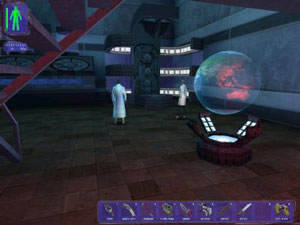 Although there are a notable few RPGs that give the player many possible solutions to obstacles, fewer still are as efficient as Cyber Knights in dishing out rewards for those solutions. For example, the Deus Ex series, which is famous for beautifully weaving combat, stealth, hacking, and social interaction into an outstanding RPG experience, has proven to be less efficient at giving experience for non-combat solutions. Of course, Deus Ex does give experience points for sneaking, hacking, and convincing characters to see your point of view, but these moments are often tied to the plot or quests and must be placed and balanced by hand so that a non-lethal player can net nearly as much experience as a deadly cyber soldier. This is done very well in Deus Ex, but it undoubtedly required time and resources.
Although there are a notable few RPGs that give the player many possible solutions to obstacles, fewer still are as efficient as Cyber Knights in dishing out rewards for those solutions. For example, the Deus Ex series, which is famous for beautifully weaving combat, stealth, hacking, and social interaction into an outstanding RPG experience, has proven to be less efficient at giving experience for non-combat solutions. Of course, Deus Ex does give experience points for sneaking, hacking, and convincing characters to see your point of view, but these moments are often tied to the plot or quests and must be placed and balanced by hand so that a non-lethal player can net nearly as much experience as a deadly cyber soldier. This is done very well in Deus Ex, but it undoubtedly required time and resources.
Cyber Knights, on the other hand, uses a fraction of the resources and development time employed by Deus Ex to push several different types of random encounters, each of which relies on different stats to successfully pass and earn experience points. The jobs you take, which are the closest thing to "quests" in the game, net you only money. Experience is gained through what happens on the way to completing those jobs. This brings it all back to the original meaning of the word. Experience is what gives you your strength, not just fighting or doing favors for people.
Another example of Cyber Knights' efficiency can be seen when contrasting the game with The Witcher 3 and Skyrim, which swell with life partly because of the advanced pathing and scheduling of the NPCs. They sleep, eat, and run errands. It is a marvel to witness, but it definitely requires a lot of time and money to get right.
The random encounters in Cyber Knights, however, turn the NBZ into a place that is teeming with humanity even though you never see another npc modeled on the map outside of combat. These encounters carry almost the entire weight of the moment-to-moment atmosphere, and they do it effortlessly.
Cyber Knights brilliantly invents and adopts ideas to compensate for its scarce resources while fulfilling its ambitions. There are many great indie RPGs that deliver on mechanics and plot, but few attempt the scope or depth of Cyber Knights. It has no plot to speak of, but as you play it, a story forms that truly belongs to you. You meet people, travel the Zone, see things, and develop professional relationships, all with very little dialogue. Additionally, the world changes around you convincingly through faction interactions. You end up feeling like a little speck in a much larger criminal machine that occasionally allows you to manipulate it, often with interesting and unexpected results.
Cyber Knights is an exquisite RPG that provides a blueprint for small developers who want to make a complex game. It proves that, though these small developers may be limited, their worlds can still be grand in scope, fascinating to inhabit, and dangerous to explore.
![]()
